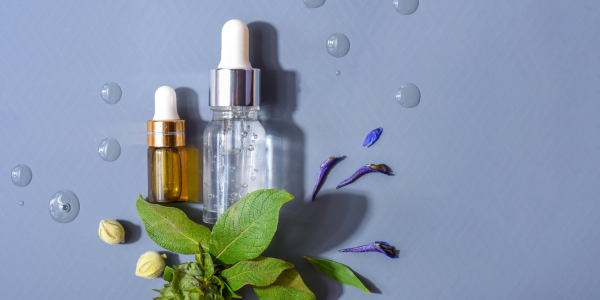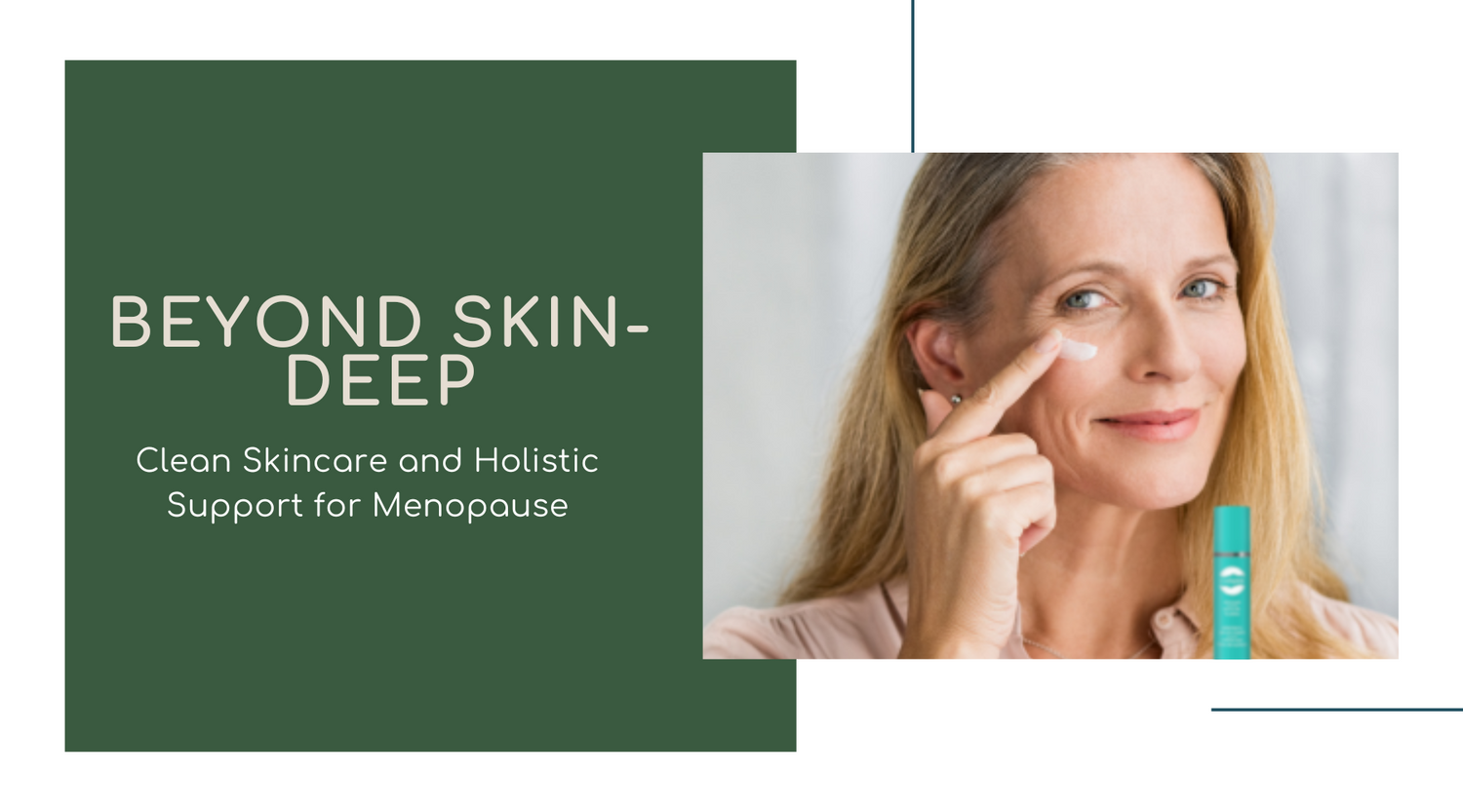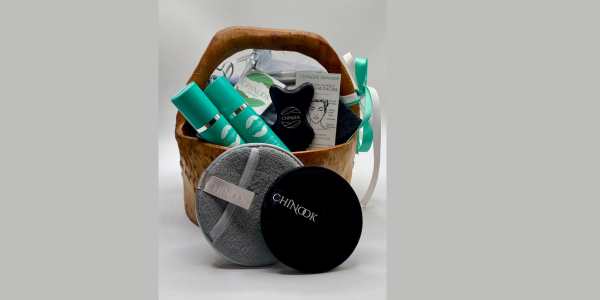
For individuals seeking cruelty-free skincare alternatives to traditional retinol products, there are several gentle and vegan options available that offer similar skincare benefits. One alternative is bakuchiol, a plant-based compound derived from the babchi plant.
Bakuchiol has been shown to have retinol-like effects on the skin, including promoting collagen production, reducing the appearance of fine lines and wrinkles, and improving skin texture and tone. Because it's derived from plants, bakuchiol is suitable for vegans and is generally considered gentler on the skin, making it an excellent option for those with sensitive or reactive skin types.
Another vegan retinol alternative is rosehip oil, which is rich in vitamins A and C, essential fatty acids, and antioxidants. Rosehip oil can help improve skin elasticity, reduce hyperpigmentation, and boost overall skin health without the potential irritation associated with retinol.
Additionally, rosehip oil is lightweight and easily absorbed, making it suitable for all skin types, including oily and acne-prone skin. By incorporating these gentle and vegan retinol alternatives into their skincare routines, individuals can enjoy the benefits of retinol-like effects while adhering to cruelty-free principles and supporting their skin's health and well-being.
Click here to learn more about: the chinook skincare collection
Vegan Retinol Substitutes: Best Options for Cruelty-Free Skincare
The increasing demand for ethical choices in skincare has led to the rise in popularity of vegan retinol substitutes. Unlike traditional retinol derived from animal sources, these alternatives do not have harmful effects on animals and the environment.
As conscientious consumers seek cruelty-free options, vegan retinol substitutes have emerged as a paramount solution. These substitutes harness the power of natural and plant-based ingredients that provide similar benefits to traditional retinol, without the ethical concerns.
The efficacy of these alternatives has been scientifically researched and proven, making them a reliable choice for those who prioritize ethical options in their skincare routine. The skincare industry is witnessing the emergence of trending plant-based retinol substitutes, offering unique properties and potential benefits.
Alongside these options, there are also animal-friendly alternatives available that do not involve animal testing or harm animals. To truly support ethical practices, it is essential to consider ethical options, such as animal-friendly alternatives.
Comparing Plant-Based Alternatives to Traditional Retinol Products
In the ever-evolving world of skincare, the demand for cruelty-free and vegan options has driven advancements in plant-based alternatives to retinol. Retinol, a well-known anti-aging ingredient, has long been favored, but not all retinol products align with ethical principles.
This section aims to explore the benefits of plant-based alternatives, providing insight into the natural choices and sustainable options available for conscious consumers. By delving into the efficacy and potential side effects of these alternatives, individuals can make informed decisions about their skincare routines.
Innovations in plant-derived retinol alternatives have paved the way for environmentally friendly options in the future of skincare. As consumers increasingly seek animal-friendly alternatives, it becomes essential to compare the availability, pricing, and efficacy of these alternatives for different skin types.
Plant-Based Retinol Alternatives
- Plant-based retinol alternatives are cruelty-free and vegan, aligning with ethical principles.
- These alternatives offer natural choices and sustainable options for conscious consumers.
- Studies have shown that plant-based retinol alternatives can be as effective as traditional retinol in reducing signs of aging.
- Plant-derived retinol alternatives are environmentally friendly and contribute to the future of sustainable skincare.
Exploring Ethical Options for Retinol Alternatives
Exploring ethical options for retinol alternatives involves seeking out skincare products that offer similar benefits to retinol while aligning with ethical and sustainable principles. One alternative to retinol is bakuchiol, a plant-derived compound with similar anti-aging properties but without the potential irritation associated with retinol use.
Bakuchiol is derived from the seeds of the Babchi plant and has been shown to improve skin texture, reduce fine lines and wrinkles, and enhance collagen production, making it a promising alternative for those seeking gentler skincare options.
Additionally, natural ingredients such as rosehip oil, niacinamide (vitamin B3), and peptides are also effective alternatives to retinol for promoting skin renewal and reducing signs of aging. These ingredients offer antioxidant and anti-inflammatory benefits while being generally well-tolerated by sensitive skin types.
Moreover, choosing skincare brands that prioritize ethical sourcing, cruelty-free practices, and environmentally friendly packaging further enhances the ethical appeal of retinol alternatives.
By exploring these options, consumers can achieve their skincare goals while supporting brands that prioritize both effectiveness and ethical considerations.
Discovering Animal-Friendly Alternatives to Retinol
As concerns about animal welfare continue to rise, many individuals are seeking out animal-friendly alternatives to retinol, a popular skincare ingredient known for its anti-aging properties. Fortunately, there are several plant-based alternatives available that offer similar benefits without the use of animal-derived ingredients or testing.
For instance, bakuchiol, derived from the seeds of the babchi plant, has emerged as a promising alternative to retinol. Bakuchiol exhibits similar effects to retinol in promoting collagen production, reducing fine lines and wrinkles, and improving skin texture, making it a suitable option for those looking for cruelty-free skincare alternatives.
Additionally, botanical extracts such as rosehip oil, green tea extract, and licorice root extract are rich in antioxidants and other compounds that can help rejuvenate and revitalize the skin, providing anti-aging benefits without the use of animal-derived ingredients. These natural alternatives offer a cruelty-free and sustainable option for individuals seeking to maintain youthful, healthy-looking skin without compromising their ethical values.
By incorporating these animal-friendly alternatives into their skincare routines, consumers can support the growing movement towards cruelty-free beauty while still enjoying the benefits of effective anti-aging treatments.
Unveiling Natural Choices for Retinol Alternatives: Do They Work?
As retinol alternatives gain popularity in skincare, consumers are increasingly turning to natural options in search of effective anti-aging solutions without the potential side effects associated with retinol. Ingredients like bakuchiol, derived from the babchi plant, and rosehip oil are touted as retinol alternatives due to their purported ability to stimulate collagen production, reduce wrinkles, and improve skin texture.
While research on these natural alternatives is still emerging, early studies suggest promising results, with bakuchiol showing comparable efficacy to retinol in reducing fine lines and wrinkles and improving skin firmness.
Additionally, natural alternatives like peptides, vitamin C, and niacinamide offer antioxidant and anti-inflammatory properties that can enhance skin health and provide anti-aging benefits. Peptides stimulate collagen production, vitamin C brightens the complexion and protects against environmental damage, while niacinamide helps improve skin texture and reduce the appearance of pores.
While these natural alternatives may not replicate the exact effects of retinol, they offer viable options for individuals seeking gentler alternatives or those with sensitive skin.
Ultimately, incorporating a combination of natural ingredients into skincare routines can provide comprehensive anti-aging benefits while minimizing the risk of irritation or adverse reactions commonly associated with retinol use.
Promoting Sustainability with Retinol Alternatives: Making a Difference
The skincare industry is experiencing a growing demand for ethical and natural alternatives to retinol as sustainability takes center stage. Consumers are now seeking cruelty-free and vegan options that not only deliver effective results but also align with their values.
In response to this shift, brands are stepping up their game by developing plant-based retinol alternatives sourced from botanical ingredients. These natural alternatives not only offer comparable efficacy to traditional retinol but also promote sustainable sourcing and production practices.
By choosing these animal-friendly alternatives, consumers can make a positive impact on the environment and support brands that prioritize sustainability, animal welfare, and ethical skincare.
Ethical and Natural Skincare
- Consumers are increasingly demanding ethical and natural alternatives to retinol.
- There is a growing trend for cruelty-free and vegan skincare options.
- Brands are developing plant-based retinol alternatives sourced from botanical ingredients.
- Natural alternatives to retinol offer comparable efficacy to traditional retinol while promoting sustainable sourcing and production practices.
Protecting the Environment with Eco-Friendly Solutions for Retinol Alternatives
The increasing demand for sustainable skincare has created a need for environmentally friendly solutions that prioritize the protection of our planet. One particularly concerning area is the use of retinol in skincare products, which is known for its anti-aging properties.
The extraction process and production of retinol often involve harmful chemicals that have a detrimental impact on animals and the environment. To address this concern, there has been a rise in retinol alternatives that offer a cruelty-free, vegan, and natural approach to skincare. These alternatives provide a more eco-friendly option for individuals who strive to make conscious choices for the well-being of our planet.
By integrating sustainable skincare and eco-friendly skincare practices, we can ensure a healthier future for both ourselves and the environment we inhabit.
Safer and Non-toxic Alternatives for Retinol Healthy Skin Options
Concerns regarding the safety and toxicity of retinol have prompted a growing demand for healthier alternatives in skincare. Nowadays, many consumers prioritize cruelty-free, vegan, and natural options when it comes to their skincare routines.
Retinol has been linked to potential side effects and irritations, as well as ethical concerns regarding animal testing and the use of animal-derived ingredients. Luckily, there are several natural alternatives to retinol available that offer comparable benefits without the associated hazards.
Botanical extracts and other plant-based ingredients have been proven effective in providing retinol-like properties. Opting for non-toxic skincare options is not only important for personal well-being but also for ethical reasons. This has led to an increase in the market for plant-derived retinol alternatives.
By carefully examining ingredient labels and understanding their sources, individuals can make informed choices and opt for clean skincare alternatives.
| Concerns about Retinol | Natural Alternatives | Ethical Considerations |
|---|---|---|
| Retinol linked to side effects and irritations | Botanical extracts offer retinol-like properties | Animal testing and use of animal-derived ingredients |
| Growing demand for healthier skincare options | Plant-derived alternatives without associated hazards | Importance of ethical choices in skincare |
Choosing Clean Alternatives for Retinol: Avoiding Harmful Ingredients
When opting for clean alternatives to retinol, it's essential to steer clear of harmful ingredients commonly found in skincare products. One such ingredient is parabens, which are synthetic preservatives often used to extend the shelf life of skincare formulations. Parabens have been linked to hormone disruption and allergic reactions, making them a concern for those seeking clean skincare options.
Another ingredient to avoid is synthetic fragrances, which can contain a cocktail of potentially harmful chemicals known to irritate the skin and exacerbate sensitivity. Opting for products with natural fragrances or those labeled as fragrance-free can reduce the risk of adverse reactions and support a cleaner skincare routine.
Additionally, avoiding harsh sulfates, such as sodium lauryl sulfate (SLS) and sodium laureth sulfate (SLES), can help maintain skin health and integrity. These surfactants are commonly used in cleansers and can strip the skin of its natural oils, leading to dryness, irritation, and inflammation. Instead, choosing sulfate-free alternatives ensures a gentler cleanse without compromising the skin's moisture barrier.
Moreover, mineral oil and petroleum-derived ingredients should be avoided, as they can clog pores and prevent the skin from breathing properly. Opting for plant-based oils and natural emollients, such as jojoba oil or shea butter, can provide hydration and nourishment without the risk of pore congestion or adverse reactions.
By being mindful of ingredients and opting for clean alternatives, individuals can maintain healthy, radiant skin while minimizing exposure to potentially harmful chemicals.
Supporting Eco-Conscious Skincare: Green Alternatives for Retinol
The demand for eco-friendly and sustainable skincare products is on the rise, leading to a shift towards green alternatives for retinol. With traditional retinol production causing negative environmental impacts like deforestation and pollution, it is crucial to find eco-conscious alternatives.
While retinol is a popular ingredient known for its benefits in wrinkle treatments and skincare solutions, there is now a growing demand for vegan and cruelty-free options. Exploring natural and plant-based ingredients as potential retinol alternatives can provide similar benefits without harming the environment.
It is important to choose retinol alternatives that are not tested on animals, as animal-friendly options are readily available and equally effective. By supporting eco-conscious skincare choices, we can promote sustainable practices while still enjoying the benefits of effective skincare solutions.





